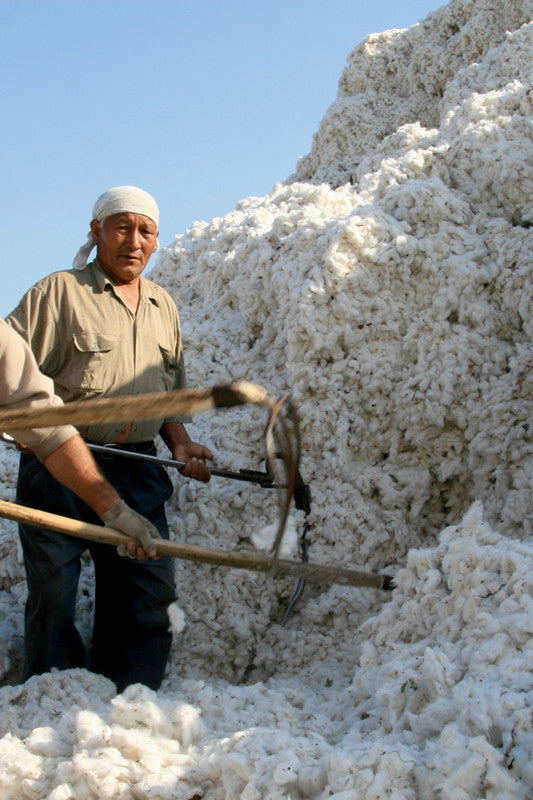Why Is Organic Cotton Better?
Organic or non-organic? This question also applies to cotton. What is the difference compared to organic cotton and why is it better? Find out more!

Organic or non-organic? This question also applies to cotton. What is the difference compared to organic cotton and why is it better? Find out more!
Organic or non-organic? As a consumer, one is often faced with the question and the same applies to cotton also.
But why should someone check natural fibers, if they originate from organic farming, and what are the differences between conventional cotton and organic cotton?
The cultivation of conventional cotton can greatly pollute the environment and afflict human beings. The solution? Organic cotton! But what makes organic cotton different and why is it better?
A most important advantage in the cultivation of organic cotton is that the use of chemicals is completely dispensed with: Pesticides and Fertilizers are prohibited. Instead, biological pest control is relied upon. Organic cotton plantations are kept fertile with natural fertilizers such as manure and compost. In this way, large amounts of toxic chemicals are spared from penetrating soil and water.
By using natural fertilizers, not only do cotton plants grow well, there also is another advantage: Due to its increased humus content, the soil can absorb more water and carbon dioxide. Considering the fact that normal cotton cultivation uses approx. 2000 liters water for just one T-shirt, this is a big plus benefit. The use of manure and compost reduces water consumption significantly. Also, the erosion susceptibility in the soil decreases.

In order to prevent the spread of harmful insects and to protect the soil, organic cotton is planted alternately with other crops. And, planting certain crops in the immediate vicinity of a cotton plant can prevent pest infestation in a natural way..
Every five to nine months after sowing, organic cotton is harvested by hand. Harvesting by machine is not possible because the leaves of the cotton plant would have to be removed first. A chemical defoliation, as is done with conventional cotton cultivation, is prohibited.
A further significant advantage: No genetically modified plants may be used to grow organic cotton. These, meanwhile, make up a large part of the cotton market. If such plants are so widespread, then what is the problem with genetically modified cotton? Shortly said, it has no advantage, only disadvantages! They burden the purse of cotton farms, in no way produce better yields and require as much pesticide for cultivation as with other seeds; they are quite demanding plants.
There are several different certifying systems for organic cotton. Organic cotton may only be awarded as being organic, if the cotton farms have complied with the guidelines of organic farming. The same applies for the terms “ecological cotton” and “kba” (Certified Organic Cultivation). At Mandala, we rely 100% on GOTS certified cotton. The Global Organic Textile Standard adheres to numerous ecological and social guidelines.
Not only is the origin of the fiber we use of importance to us, but also the footprint we leave in the world. Our Mandala Yoga Fashion is made out of organic cotton and should be comfortable, fit perfectly and not pollute the environment nor harm a single person in the production chain.Check out our organic cotton collection here!
Your cart is currently empty.
Start Shopping